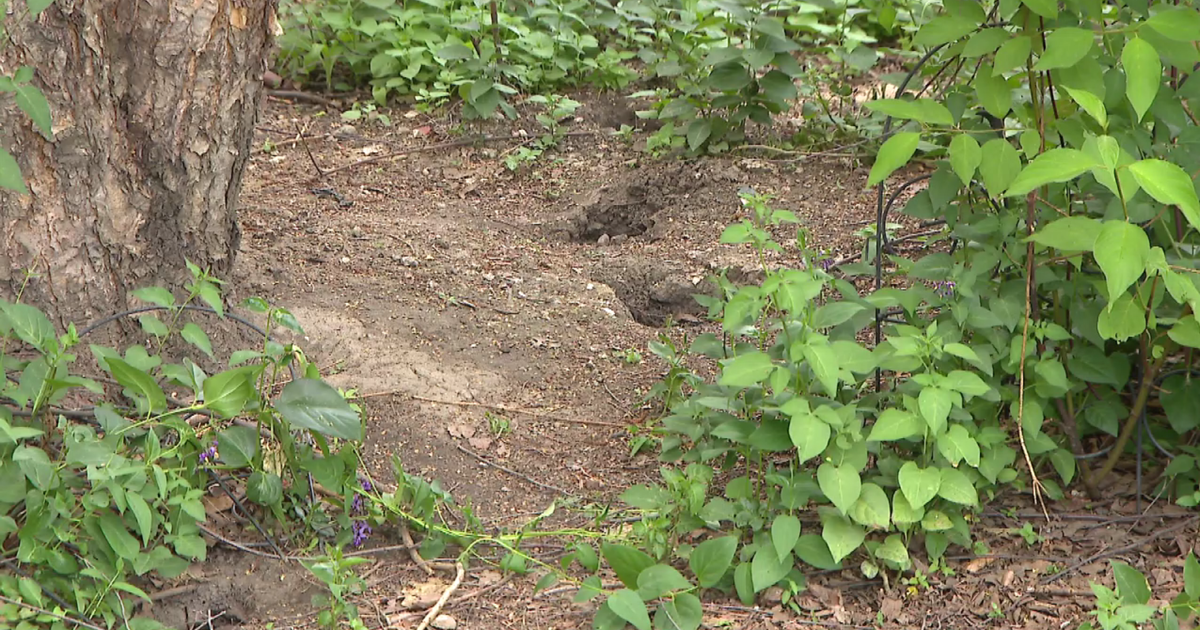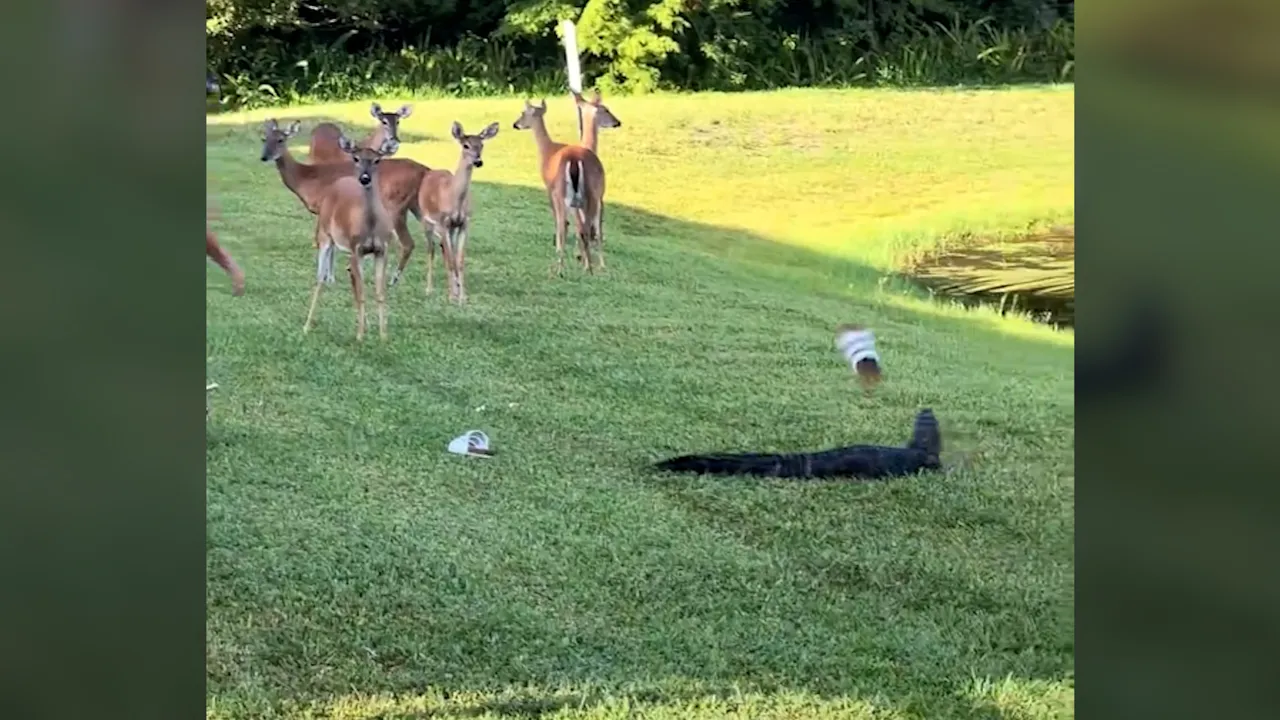CHICAGO – LINCOLN SQUARE | Every summer for the past 28 years, Jane has found herself ankle-deep in rotting berries from a massive mulberry tree she doesn’t even own. The tree, rooted in a neighbor’s yard, rains down its fruit onto Jane’s property — and with it comes a growing rat infestation, unbearable smells, and zero relief from the city.
“I’ve collected over 215 pounds of berries since June 14,” Jane told CBS News Chicago, standing in her yard in blue jeans and a Neo nightclub T-shirt, scooping the rotting fruit from nets stretched between garages. She stores them in bags to prove her point — the mess is massive, and the fruit is useless.
“You can’t cook with them, you can’t donate them. They’re just garbage — and the rats love it.”
Rotten Fruit and Rodents: A Toxic Mix
Jane has documented the scene extensively: berries fermenting on concrete, rat feces everywhere, and even a mother rat carrying her babies during one of many nighttime feasts.
“It’s like the smell of old beer or bad wine,” she said of the fermenting fruit.
The berries fall continuously for about six weeks each summer. While Jane has set up nets to catch what she can, the mulberry tree’s reach is extensive, dropping fruit not only into her yard but across neighboring garages and sidewalks.
No Help from the City on Private Tree Troubles
The tree belongs to Jane’s neighbor, and its branches are so large that some are supported by metal braces. But city officials say they can’t intervene because it’s located on private property.
Jane reached out to Ald. Matt Martin (47th Ward), whose office confirmed she has the legal right to trim any branches hanging over her property line. But the issue is far bigger than a few overreaching limbs.
“The problem is with the entire tree,” Jane explained, frustrated that city codes offer little recourse.
The situation mirrors a similar case from Peterson Park in 2021, where a woman who trimmed back her neighbor’s invasive trees was sued for $100,000 under the Illinois Wrongful Tree Cutting Act. That homeowner eventually sold her home to the tree-owning neighbors and moved away, according to CBS.
Is the Tree Invasive? Experts Weigh In
Jane and two plant specialists believe the tree is a white mulberry, a species not native to Illinois and considered weedy or invasive by many ecologists.
According to Jamie Viebach, a horticulture educator with the University of Illinois Urbana-Champaign, the white mulberry was originally introduced to the U.S. as food for silkworms. While it is not legally classified as invasive in Illinois, it is still listed as a “problem plant” by the Morton Arboretum.
Chris Evans, an extension forestry specialist at the University of Illinois, confirmed that the tree is often managed or removed by land managers when found in natural areas.
“It’s not banned statewide, but land stewards treat it as invasive,” Evans noted.
City Won’t Call It a Nuisance
Despite the stench, rats, and health complaints, the City of Chicago does not classify the mulberry issue as a “public nuisance.” Per ordinance 10-32-140, vegetation is only labeled as a nuisance if it blocks light, signage, or presents a physical danger like broken limbs or pest infestation posing a citywide threat.
So far, the city says Jane’s case doesn’t meet the threshold.
Have you dealt with invasive plants, encroaching trees, or rodent issues on your block? Share your story with our readers at ChicagoSuburbanFamily.com and help spark local solutions.












